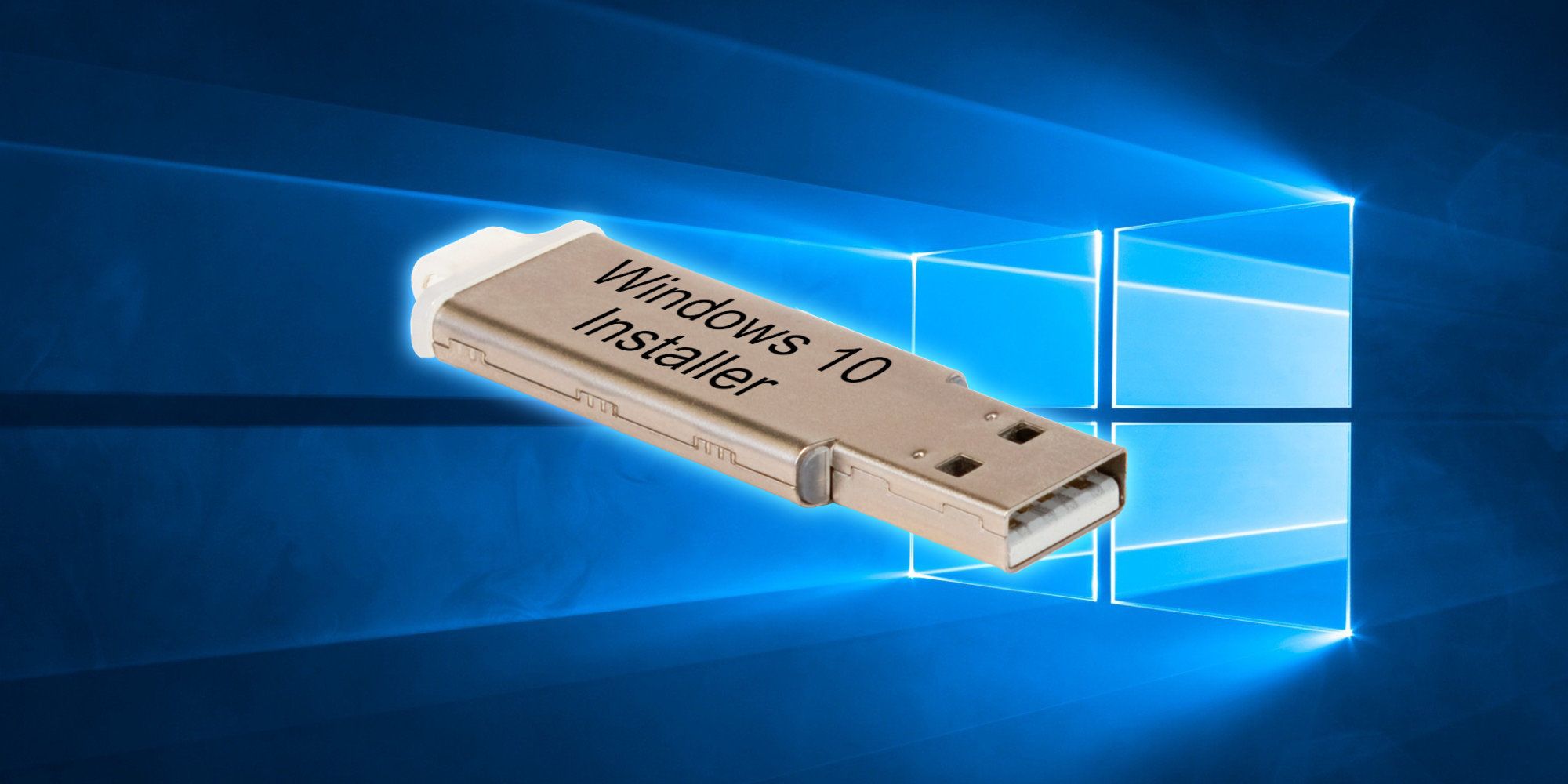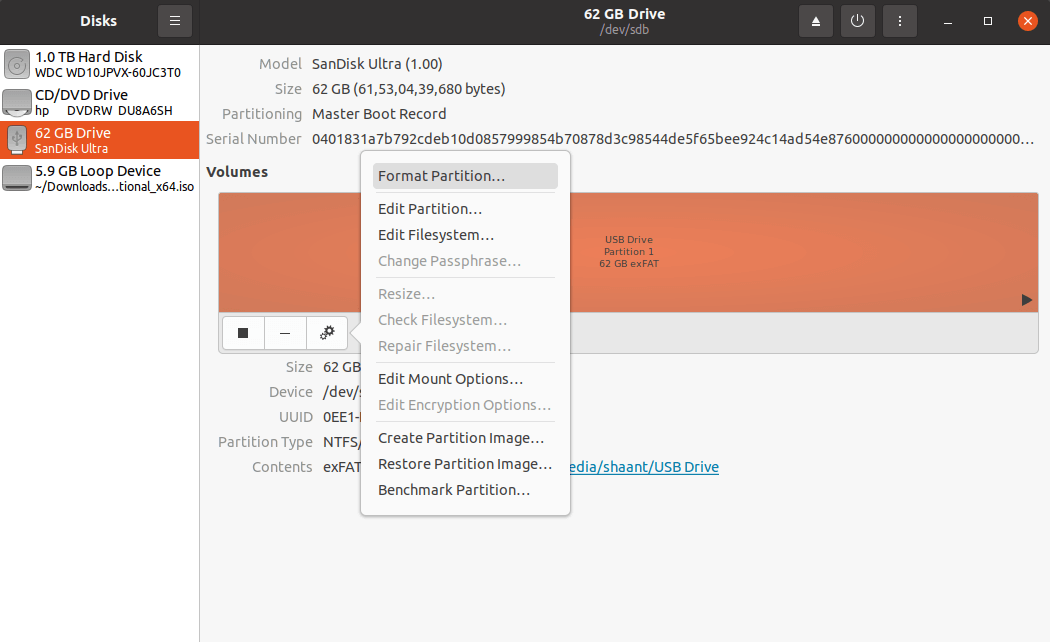The Versatility of Windows 10 on a USB HDD: A Comprehensive Guide
Related Articles: The Versatility of Windows 10 on a USB HDD: A Comprehensive Guide
Introduction
In this auspicious occasion, we are delighted to delve into the intriguing topic related to The Versatility of Windows 10 on a USB HDD: A Comprehensive Guide. Let’s weave interesting information and offer fresh perspectives to the readers.
Table of Content
The Versatility of Windows 10 on a USB HDD: A Comprehensive Guide

The ability to install and run Windows 10 from a USB hard drive offers a compelling solution for various scenarios. This method provides flexibility, portability, and a potential alternative to traditional hard drive installations. This article will delve into the intricacies of this approach, exploring its benefits, applications, and potential challenges.
Understanding the Concept
A USB hard drive, often referred to as an external hard drive, is a storage device that connects to a computer via a USB port. Unlike traditional hard drives, which are typically installed within a computer’s chassis, USB hard drives are external and portable. This portability makes them ideal for various applications, including data backup, file transfer, and even operating system installation.
Installing Windows 10 on a USB hard drive involves creating a bootable USB drive with the Windows 10 installation files. This bootable drive allows the computer to start from the USB drive and initiate the Windows 10 installation process. The installed operating system then resides on the USB hard drive, making it possible to boot and run Windows 10 from the external drive.
Benefits of Using Windows 10 on a USB HDD
The ability to run Windows 10 from a USB hard drive presents several advantages, making it a viable option for a diverse range of users:
- Portability: The primary benefit of using Windows 10 on a USB hard drive is its portability. This allows users to carry their operating system and applications on a compact and easily transportable device. This is particularly useful for individuals who frequently travel or work on multiple computers.
- Flexibility: Using a USB hard drive provides flexibility in terms of system access. It enables users to boot into a different operating system without altering the primary hard drive installation. This can be valuable for testing new software, running specific applications, or accessing a separate work environment.
- Troubleshooting: A USB hard drive installation can serve as a troubleshooting tool. If the primary hard drive encounters issues, booting from the USB drive provides a stable environment for data recovery, system repairs, or even reinstalling the operating system.
- System Recovery: A USB hard drive with a Windows 10 installation can act as a system recovery tool. In case of a system crash or corruption, the USB drive can be used to restore the operating system to a previous state.
- Security: Using a USB hard drive can enhance security by isolating the operating system from the primary hard drive. This approach can be beneficial for users who handle sensitive data or require a more secure environment.
Applications of Windows 10 on a USB HDD
The versatility of Windows 10 on a USB hard drive opens up a range of applications for various user types:
- Mobile Professionals: Individuals who frequently travel for work can benefit from having their entire work environment on a portable USB hard drive. This allows them to access their applications, files, and settings on any computer with a USB port.
- IT Professionals: IT professionals can utilize a USB hard drive to test software, troubleshoot systems, or deploy operating systems without affecting the main hard drive. This ensures a clean and isolated environment for testing and deployment.
- Students: Students can use a USB hard drive to access their coursework, research materials, and applications from multiple locations. This eliminates the need to carry bulky laptops or constantly transfer files between devices.
- Gamers: Gamers can use a USB hard drive to install games and run them on different computers without needing to install them on each individual machine. This can be particularly useful for LAN parties or when accessing gaming systems with limited storage space.
- Security Professionals: Security professionals can utilize a USB hard drive to create a secure environment for handling sensitive data. By isolating the operating system from the primary hard drive, they can minimize the risk of data breaches or malware infections.
Considerations and Challenges
While the benefits of running Windows 10 from a USB hard drive are significant, there are also some considerations and potential challenges:
- Performance: The speed of a USB hard drive can be slower than a traditional hard drive, especially older USB 2.0 drives. This may result in slower boot times and application loading speeds.
- Storage Space: USB hard drives have limited storage capacity compared to traditional hard drives. This can be a limitation for users with large files or extensive software libraries.
- Compatibility: Not all computers are compatible with booting from a USB hard drive. Some older systems may require specific BIOS settings or drivers to support this functionality.
- USB Port Availability: The availability of USB ports on a computer can be a factor. If a computer has limited USB ports, connecting a USB hard drive may limit the use of other peripherals.
- Power Consumption: USB hard drives can consume more power than traditional hard drives, potentially draining laptop batteries faster.
FAQs Regarding Windows 10 on a USB HDD
Q: Can I use any USB drive to install Windows 10?
A: Not all USB drives are suitable for installing Windows 10. The drive should have sufficient storage capacity (at least 16GB) and be formatted with a compatible file system (usually NTFS).
Q: Will my existing applications and files transfer to the USB drive?
A: No, installing Windows 10 on a USB drive will not transfer your existing applications and files. You will need to reinstall them after the installation is complete.
Q: Can I use the USB drive to boot my computer if my main hard drive fails?
A: Yes, if you have installed Windows 10 on the USB drive, you can use it to boot your computer if your primary hard drive fails. However, it’s important to note that this will only provide access to the operating system and applications installed on the USB drive.
Q: Is it safe to use a USB drive for Windows 10?
A: Using a USB drive for Windows 10 is generally safe, but it’s crucial to use a reputable and reliable USB drive. Ensure the drive is properly formatted and free of malware before installing Windows 10.
Q: What if I lose my USB drive?
A: Losing the USB drive with the Windows 10 installation will mean losing access to the operating system and applications. It’s advisable to create a backup of the USB drive or store the installation files on another device for safekeeping.
Tips for Installing and Using Windows 10 on a USB HDD
- Choose a Reliable USB Drive: Select a USB drive with a good reputation for reliability and performance.
- Format the USB Drive: Before installing Windows 10, format the USB drive using the NTFS file system.
- Create a Bootable USB Drive: Use a tool like Rufus or the Windows USB/DVD Download Tool to create a bootable USB drive with the Windows 10 installation files.
- Backup Important Data: Before installing Windows 10 on the USB drive, back up your important data to a separate location.
- Check BIOS Settings: Ensure your computer’s BIOS settings allow booting from USB devices.
- Install Necessary Drivers: After installing Windows 10, install any necessary drivers for the USB drive and other hardware components.
- Regularly Update Windows 10: Keep your Windows 10 installation on the USB drive updated with the latest security patches and updates.
Conclusion
Installing and running Windows 10 from a USB hard drive offers a unique and compelling solution for various scenarios. Its portability, flexibility, and troubleshooting capabilities make it a valuable tool for mobile professionals, IT professionals, students, gamers, and security professionals. While performance and storage space limitations need to be considered, the benefits of using a USB hard drive outweigh the drawbacks for many users. By understanding the concept, its advantages, and potential challenges, individuals can make informed decisions regarding the suitability of this approach for their specific needs.



![Install Windows 10 on Second Hard Drive [Step-by-Step Guide]](https://10scopes.com/wp-content/uploads/2023/01/select-usb-flash-drive.jpg)

![Windows 10 kurulum USB'si nasıl hazırlanır? [2023 Güncel] - SDN](https://ares.shiftdelete.net/2023/02/Adsiz-tasarim-3.png)


Closure
Thus, we hope this article has provided valuable insights into The Versatility of Windows 10 on a USB HDD: A Comprehensive Guide. We appreciate your attention to our article. See you in our next article!